Since the introduction of the National Action Charter ‘Al-Meethaq’ in 2002, women and men have equal political rights in Bahrain, giving both the right to vote and actively participate in politics. However, female presence in politics is considerably low. In this series we will address the issue of low political presence in Bahrain by dividing the problem into three articles. In “Bahraini Politics: Where Are The Women?”, we will look at the political background in Bahrain and the statistics of women serving in higher positions, as well as compare the country to other Gulf States. In the second part “The Bahraini Society: Challenging Women’s Political Presence” we explain how the male dominant society, religious influences and lack of endorsements by political societies cause women to experience pressure to withdraw from elections or stay away from the political scene, but also to feel hesitant towards participating to begin with. In “Is There Hope For Equal Political Representation?” we show how the popular uprising in 2011, has put women’s rights on a back shelf, and the challenges for both men and women have become more similar and equal, leading to an unclear future for women in politics in Bahrain. Experts and female activists propose some solutions that could gradually improve women’s political presence in Bahrain.
The Bahraini Society: Challenging Women’s Political Presence
Women’s role in the political scene in Bahrain is not as widespread as one would expect it to be. Statistics suggest despite government laws being in favor of women’s participation in politics, the number is still considerably low. The changes modernization has brought to the region conflict with the traditional values and social behaviors the area had deeply rooted. The process of modernization moving towards the Middle East and the region, created artificial societies with a modern surface, without solving modern dilemmas.[1]
Although the laws for political involvement in Bahrain open the doors for women, the way to reach leading positions is considered much more difficult for women than for men. President of the Bahrain Women’s Association Wajeeha Al-Baharna refers to these female specific challenges as the “triangle of oppression against women,” which she argues include politicians, religious figures, and social norms and traditions. We further explain these angles in three main causes: Bahrain’s male dominated society, religious influences and political societies’ lack of endorsement for women.
Male Dominance
A couple of days after the elections in 2006, Mariam Al-Rowaie asked a female friend about the candidate she voted for. The woman confessed she voted for her male opponent Jassim Al-Saeedi, explaining she was pressured by her eldest son. She told Al-Rowaie “My son told us, ‘They want us to let a woman speak in our name? That’s the end of times.’ My family and I didn’t have a choice, we couldn’t break his word.”
Despite the open minded and socially advanced reputation Bahrain enjoys, the mindset of male dominance is an embedded culture and strongly present in the upbringing. Al-Rowaie’s conversation with the woman shows how members of the society not only are against females being in leading positions, but also how women can sometimes place themselves in the passenger seat, as followers rather than leaders.
Nada Alwadi, an independent Bahraini journalist and researcher on women’s issues in Bahrain, says this is especially evident in rural areas and villages. “I see these people respect women, because they see them everywhere in society. However, Even though they feel women can play an important leading role, they will never vote for them and always prefer a man.” With men in leading positions, women have different roles, Al-wadi explains. “It is expected of women to be stay-home mothers, raise and take care of the children. They argue, when is she even going to have time to participate in politics?”
A study by Magdalena Karolak from the New York Institute of Technology shows this environment makes some women resistant to jump into politics. Some women already have little interest in taking part in politics, and the lack of support by society isn’t exactly encouraging.
To top it off, networking has become a privilege more for men than women. Political gatherings and discussions are mostly held at night, when male guardians restrict their women from leaving the house at a later hour. Other gatherings take place at mosques, where men and women are segregated. Al-Rowaie explains how her opponent, being an influential religious figure, used his mosque to preach and ask for votes. “These platforms are available for men all year round and not only during that one month before casting the ballot. Women don’t have these platforms which limits their chances.”
Religious influences
In an attempt to gauge public reactions to her campaign’s events and speeches, Al-Rowaie assigned some of her staff members to monitor conversations taking place where people gather, usually in a traditional café, ‘Gahwa’. A monitor reported back an exchange between men who attended one of her speeches and men who didn’t. The conversation revolved around whether she was dressed appropriately, or wore her headscarf ‘Hijab’ properly, rather than discussing the political agenda and policies she put forward to serve her community.
The European Parliament considers Bahrain one of the most liberal countries in the GCC in terms of interpreting and applying Islam. It acknowledges the government’s steps towards political reform in the early 90s has scaled down the influence of religion in the society. Women alongside men had access to education, and were active in the civil society.
Even though Bahrain is not a country where religion is sacredly practiced, politics and religion can not be seen separate from each other. In Bahrain, like other countries in the region, political ideas and programs are guided by Islam. That is also reflected in the dynamics of the society. The difficulty to separate religion from politics often gives religious figures political powers. Opposition groups Alwefaq National Islamic Society and government supporting group Al-Menbar Islamic Society are examples of political societies that are also Islamic. A dilemma which creates a blurred line between religion, social norms, and politics, where they all blend together and guide what has long been accepted as traditional practices.
Karolaks study also shows that in Bahrain, religion is not holding women back from making it to leading positions in politics, it is how religion is used as a tool to persuade the people.
Al-Rowaie confirms Karolaks study but disagrees with the EU notion of liberal Islam in Bahrain, “It is not the religion itself, it’s the misinterpretation of Islam, and political islamic societies’ use of religion to serve their political agendas.”
The imposition of this misinterpretation affects the way women see themselves and the idea they have of what their role should be in the society. Men, supported by religion and religious figures who are also male, use religion to their own benefit. They take advantage of some women’s lack of awareness of their rights and manipulate these interpretations to add to their oppression. This results in creating a self-image in women’s minds that reflects men’s degrading view of women’s role in the Bahraini society. [1]
Educated and more liberal women have troubles accepting this traditional vision of a woman’s role in the society, and seek to find a balance between modernity and traditions.3
Prominent female figure and Vice President of leftist opposition group National Democratic Action Society (WAAD) Muneera Fakhro faced a tremendous amount of pressure from her religious male opponents during 2006 elections. Members of Islamic societies tried to taint her reputation by calling her a communist and saying she drinks alcohol, a forbidden practice in Islam, to spur people away from voting for her. Despite Fakhro’s belief she was not targeted for being a woman, but because she is a member of a leftist secular group, religious figures referred to texts from the Qura’an and the Hadith and used them to lobby against women specifically, her included. Recurring ones were: “A woman’s voice is a sin”, and “A nation will not succeed if they are led by a woman.”
During the elections in 2006 and 2010, some of these parties reportedly put together a list of the most deserving candidates based on their level of faith called “Kutlat Al Eman” literally translates to the “Bloc of Believers”. In their campaigns they urged their followers to vote telling them it’s a religious duty to support these candidates.
Current member of the Nuwab, Jameela Al-Sammak, told Gulf News in 2006 when she ran for elections as an independent candidate: “I have never opposed religious scholars. But when for instance they say that Al Wefaq is the Bloc of the Believers, does that make me an atheist?”
We contacted Al Sammak for further input but she did not want to participate in this article. Our attempts to include other government responses were unsuccessful after having contacted several parliament members, but they were not available to comment.
While there is a large population of educated enlightened women, Al-Rowaie thinks some, especially those who attend religious gatherings and seminars, fall victims to these traditional ideas about women. Some women even go as far as advising other women to remain absent from the political scene, she says.
Political endorsement
With social norms and the use of religion driving the decision-making process in some political societies, the result is a considerably low level of political endorsement of women. That is, lack of support and encouragement to include female candidates within political societies’ bodies as representatives in governmental entities.
Al-Wadi says she personally remembers asking Alwefaq’s Secretary General Ali Salman why they had no women running for elections “and his answer was always, ‘well we respect women, they are very important in our society. We want them to lead, but we feel this is not the right time’.”
Former member of parliament for Alwefaq Matar Matar admits women empowerment was not a priority for his society as much as serving the political agenda. “It was not a target to have women as representatives,” he explains. While there was no VETO against women in Alwefaq, there were no active attempts to include them in the list of candidates, which affects the number of female politicians. “I don’t feel you can see a good representation for women without having explicit policy,” he says.
Matar’s colleague Afaf Al-Jamri, an active member of Alwefaq is popular amongst other female activists in Bahrain for being a qualified potential candidate. They claim she wanted to run for elections but Alwefaq stood in her way. Al-Jamri however refutes these claims saying her decision not to run for elections was a personal one, and assured the situation within the Islamic party is changing. She claims religious restrictions are slowly melting away and opening new horizons for future female candidates within Alwefaq.
What The Bahraini People Think
We surveyed 50 Bahrainis to understand what the average Bahraini thinks of this matter. Respondents were 32 women and 18 men between the age of 17 to 63. The results show what they perceive to be the top three challenges for women in politics. The female respondents believe male dominance, social norms, and political corruption are the main obstacles women face while trying to reach high positions. Interestingly, male respondents listed religious influences, next to social norms and male dominance as their top three. Both men and women listed social norms as a main factor, but women focused on the current political situation in Bahrain, while men emphasized religion to be a key challenge. The respondents also listed gender inequality, discrimination against women, lack of support, and women’s lack of qualifications or interest in politics.
Things took a different turn when Bahrain witnessed a popular uprising in February of 2011, where people demanded more freedoms and political reforms. The debate about women’s rights became no longer a priority on the agenda now that human rights in general are violated. In “Is There Hope For Equal Political Representation?” we are going to look at the consequences of the February 14 movement in Bahrain, and discuss possible solutions that could contribute to changing the future for women in politics in the country.
Bibliography
- Seikaly, M. (1994). Women and Social Change in Bahrain. International Journal of Middle East Studies, 26 (3). pp. 415-426. Retrieved from: http://journals.cambridge.org/action/displayAbstract?fromPage=online&aid=5199888&fileId=S00207438000607
Faten Bushehri is a Bahraini freelance journalist and rights advocate. Global Voices contributor and GV Check Desk editor. Current MA student in media and politics. She tweets at @Fatenhbu.
Anne Koopman is a Dutch Freelance Journalist, currently pursuing MA in Journalism, Media and Globalisation with focus on media and politics. She tweets at @koopman_anne.
The views expressed in this article are the author’s own and do not reflect that of the Bahrain Debate’s organising body.
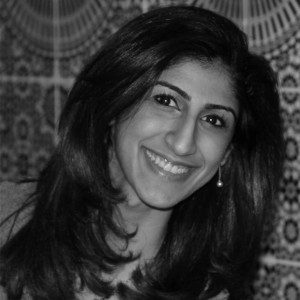
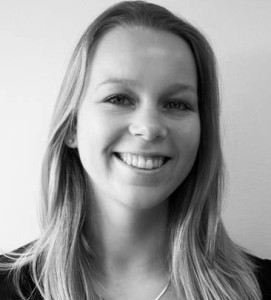

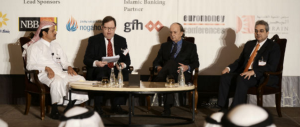
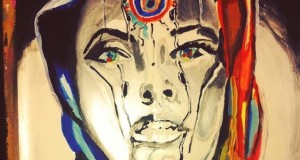
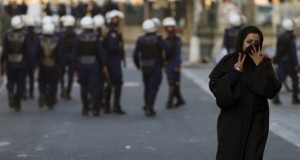
One comment
Pingback: Women’s Political Presence in Bahrain is Still Marginal | A Global voice